SUMMARY
This is AI generated summarization, which may have errors. For context, always refer to the full article.

MANILA, Philippines – Following the sinking of MT Princess Empress and its impact, it’s time the Philippines enacts a corporate environment liability law that will ensure that polluters pay, an environmental expert said.
In an interview on ABS-CBN News, lawyer and former environment undersecretary Antonio La Viña said that despite previous incidents of major oil spills, the Philippines still does not have a law that will make companies behind oil pollution pay for damage to people and the environment, especially for long-term impacts.
“We have many good environmental laws but we do not yet have a corporate environment liability act where it should be the company that pays for the damage,” he said.
He acknowledged that the country’s laws limit liability mainly to the ship owner and not to the charterer of the vessel, but added that it’s time that Congress pass a law that will make polluters pay.
Under the current system, La Viña said the private companies behind oil pollution were simply sanctioned and fined by regulatory agencies.
“We only have fines, pero maliit lang ang fines (the fines are small), and not enough to pay for the damage,” he said.
Aside from environmental damage, private companies should also compensate fishermen for loss of livelihood, as well as LGUs and resort owners for loss of revenues.
Although private companies can be sued for oil pollution, La Viña said these take a long time.
“Pag sa kaso mo dinaan, matagal yan. Dapat yung ganito, administrative ang process, ‘di sya dadaan sa korte,” he said, adding that private companies can appeal adverse administrative decisions to the courts.
(If you resort to filing cases, it will take a long time. In cases like this [Mindoro oil spill], it should be an administrative process, it doesn’t go through the courts.)
“Time and again, and I have seen this in many environmental disasters such as the Marcopper mining disaster in Marinduque, at the end of it, bahala na si Batman (it’s up to Batman). Kasi nga may gap sa batas natin (Because we have a gap in our law) on corporate liability for the impacts,” he said.
Although it may be difficult to pass such a law, La Viña said “we’ve never tried it” and it would need “champions” from both houses of Congress.
Who owns the oil?
La Viña lamented the lack of transparency on the charterer of MT Princess Empress and the owner of the more than 800,000 liters of industrial fuel oil the tanker was shipping from Bataan to Iloilo on February 28.
He said “it’s ridiculous” that three weeks after the sinking of MT Princess Empress, the public still does not know the charterer of the tanker and owner of the cargo.
Rappler reported on March 13 that it was a subsidiary of San Miguel Shipping and Lighterage Corporation, SL Harbor Bulk Terminal Corporation, which chartered the ship owner, RDC Reield Marine Services. But no government agency nor San Miguel Corporation (SMC), has publicly disclosed this information.
The Philippine Stock Exchange, where SMC is listed and traded, has apparently not asked the conglomerate to comment on this information that has been reported by Rappler and a few other news outfits more than a week ago. No disclosure has yet been made as of posting.
Maritime Industry Authority (MARINA) legal chief Sharon Aledo has merely acknowledged to Rappler in an email interview, as well as in public interviews, that MT Princess Empress left the SL Harbor Terminal. This private port is operated by SL Harbor Bulk Terminal Corp. She said regulators were not informed about the charterer.
Ship owner RDC has also not disclosed the charterer citing its non-disclosure agreement.
Even though Philippine laws penalize mainly the ship owner, La Viña said there are “openings for liability” of the charterer and cargo owner.
MARINA’s Aledo said in a recent interview that the charterer of MT Princess Empress should have undertaken “due diligence” of the ship owner, following reports that the ship did not have an approved amended Certificate of Public Convenience (CPC) or license to sail.
Oceana Legal and Policy Director Liza Osorio, in a recent Rappler interview, said the cargo owner could be held liable if it is shown that the oil was not properly packed.
In the case of the Guimaras oil spill, a special Board of Marine Inquiry found the charterer and cargo owner, Petron Corporation, liable for overloading MT Solar 1 which contributed to the tanker sinking in August 2006. Petron Corp., which handles the fuel and oil business of SMC, appealed the ruling.
Insurance coverage not for poor
La Viña also lamented that while shipping companies and cargo owners can claim insurance for their losses, there is no insurance coverage for long-term impacts on the environment and people.
He said private companies “should pay for the damage” and “insure themselves for it.”
“This oil spill, this tanker, those who contracted it will not suffer kasi (because) insured. They would not have done this [contract] without insurance. There’s always a failure to have that insurance pay for the impacts, it’s only for loss of ship and cargo,” he said.
“That’s one of the problems. Kasi ang gusto ng company, kanila lang yun [insurance].” (The company only wants the insurance for itself.)
La Viña said this should change since it’s always the poor who suffer the most in environmental disasters.
“Dapat baguhin na. Palaging holding the bag ay kapwa Pilipino mahihirap, fisherfolk, those in coastal areas dependent on fisheries, coastal tourism. LGUs [local government units] rarely get anything from the insurance,” he said.
(That should change. It’s always the poor holding the bag, the fisherfolk, those in coastal communities dependent on fisheries, coastal tourism.)
In the sinking of MT Princess Empress, La Viña said there was clearly “regulatory failure” by government agencies involved such as the Philippine Coast Guard but he said it was time that private companies also be held accountable.
“Di na tayo natuto (We have not learned our lessons). Grabe ang regulatory failures ng ating gobyerno sa Mindoro (The regulatory failures of our government in Mindoro are grave),” he said. “Even after Guimaras, hindi pa natin (we have not) put into place the system to do it right.”
In an opinion piece published by Rappler in 2019, Coast Guard deputy chief Commodore Jay Tristan Tarriela said they were always held accountable and “publicly crucified” in the event of maritime disasters while the ship owners escape accountability.
“Ironic as it may seem, it is because of this PCG mandate that the public has forgotten the shipowners who were given ‘Certificate of Public Convenience’ as a license to operate and have this responsibility. The PCG’s performance of the predeparture inspection takes away this burden of responsibility from the shipowners,” Tarriela wrote. He also said the Philippines is the only country that still requires its coast guard to conduct pre-departure inspections of domestic vessels.
RDC has said that MT Princess Empress has a $1 billion Protection & Indemnity (P&I) coverage, but doubts have been raised on whether it can claim it due to reports of the vessel was “colorum” or unlicensed.
Environmental groups and public officials have decried the likely long-term damage to the country’s rich natural resources, especially in the biodiverse Verde Island Passage. La Viña said environmental groups have long been urging the government to ban oil tankers from crossing this body of water.
Appeal to San Miguel
Instead of filing cases in court, La Viña advised the local governments and citizens affected by the oil spill to instead seek a “negotiated agreement” with SMC president Ramon Ang, if it is proven that a SMC subsidiary chartered the vessel and owns the cargo.
He noted that SMC is a “big company” with “good CSR [corporate social responsibility].”
“Mr. Ang is very supportive of this [CSR], baka malaki yung kanila makukuhang (they might get a fast) settlement,” La Vina said. “It should be a negotiated agreement para mabilis (so it will be fast). Pero kailangan ng mabilisan ang (But the damage assessment should be rushed) rapid assessment.”
On Monday, March 20, Oriental Mindoro Governor Humberto Dolor told ANC Headstart that all their LGUs agreed that they will be filing “just one solid case” on behalf of all LGUs against the ship owner.
“Before we file anything, we want to make sure that the evidence will warrant conviction,” he said.
He said they plan to file a civil case but a criminal case is also an option.
Dolor said they were worried that their legal action would take a long time, similar to what happened in the Guimaras oil spill.
“Coming from experience, ang nagpapatagal ay (what delays it are) multiple claims. That’s why we agreed we will claim as a group, as a province, in one claim. Pag nagdoble doble, magpapatagal ito (If it’s multiple, it will cause delays),” he said. “It will take 10 years, we don’t want that to happen. We don’t want years of agony. We want to go back to normal. they have to pay for the daily losses that we have,” he said.
Dolor said they were still waiting for a complete assessment of the damage to the environment, people, companies, and LGUs before filing a class suit. – Rappler.com
Add a comment
How does this make you feel?
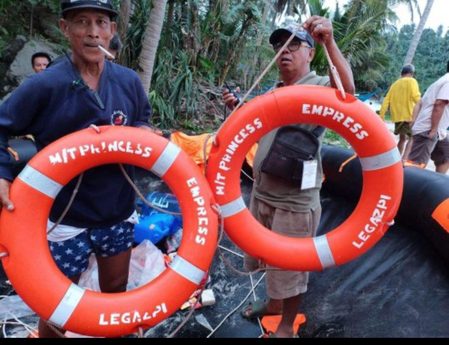
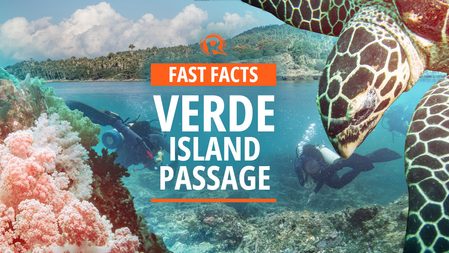
![[OPINION] Time for San Miguel president Ramon Ang to speak up on Mindoro oil spill, show ‘malasakit’](https://www.rappler.com/tachyon/2023/03/ramon-ang-oil-spill-march-15-2023.jpg?fit=449%2C449)
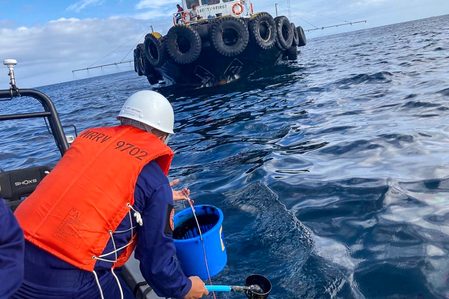










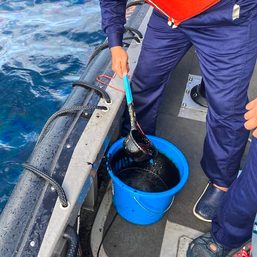

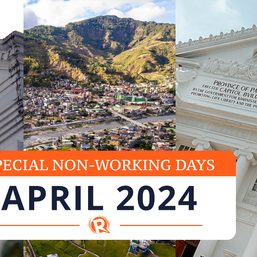
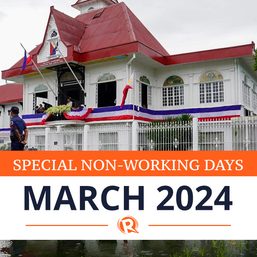
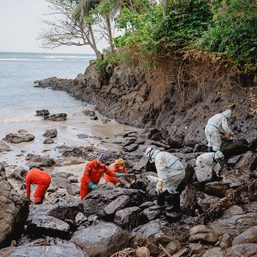
There are no comments yet. Add your comment to start the conversation.